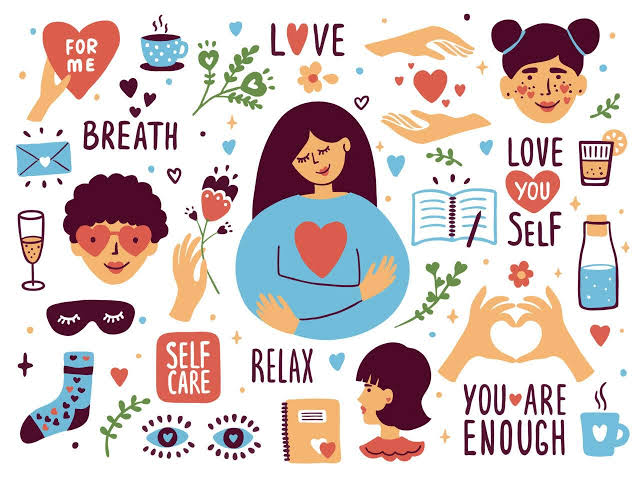Understanding the Importance of Mental Health and Self-Care Today
In today’s fast-paced world, prioritizing mental health and self-care is no longer optional—it is essential. From demanding work schedules and social pressures to the constant noise of digital notifications, our minds are under continuous strain.
Without conscious efforts to care for your mental well-being, burnout, anxiety, and depression can quietly take root. As society becomes more open about mental health issues, it is clear that well-being is a foundation for productivity, creativity, and long-term happiness.
Prioritizing self-care and mental balance empowers you to be more resilient, focused, and in control of your life.
Recognizing Signs of Mental Fatigue
Mental exhaustion doesn’t always come with loud symptoms. In many cases, it builds up gradually.
Signs may include:
- Lack of motivation or interest in daily activities
- Difficulty concentrating or remembering things
- Feelings of irritability or hopelessness
- Constant tiredness, even after sleeping
- Withdrawal from social interactions
When these feelings persist, they become serious roadblocks to your personal and professional growth. Recognizing the early signs is a major step toward reclaiming your well-being.
Building a Personalized Self-Care Routine
Self-care is not one-size-fits-all. What helps one person recharge may not work for another. The key is building a daily or weekly routine that speaks to your specific needs.
Consider incorporating:
- Physical activity: Exercise releases endorphins that lift your mood and improve sleep.
- Mindfulness or meditation: Even 10 minutes a day can bring calm and clarity.
- Creative outlets: Painting, journaling, or music can serve as emotional release.
- Digital detoxes: Reducing screen time helps you reconnect with the present moment.
- Sleep hygiene: Regular bedtimes and sleep-friendly environments restore mental clarity.
Scheduling self-care like any other task increases the chances of following through and benefiting from it consistently.
Creating Healthy Boundaries
One major source of mental stress comes from overextending ourselves—at work, in relationships, or on social media. To maintain emotional balance, setting healthy boundaries is essential.
Learn to say no when necessary without guilt. Avoid checking emails late at night. Take regular breaks throughout your workday. Let people in your life know your limits with kindness but firmness.
By defining and protecting your personal space, you avoid unnecessary emotional drain and preserve your energy for things that truly matter.
Seeking Support When Needed
Taking care of your mental health doesn’t mean handling everything alone. In fact, one of the strongest acts of self-care is reaching out for help when needed.
Support can come from:
- Friends and family who listen without judgment
- Mental health professionals such as therapists or counselors
- Support groups for shared experiences and encouragement
- Online communities focused on mental wellness
Talking about your feelings can provide new insights, relief, and perspective. There’s no shame in seeking help—it’s a proactive step toward healing and growth.
Practicing Gratitude and Positive Thinking
Gratitude is a powerful tool for shifting mental focus from what’s wrong to what’s going right. It helps rewire the brain toward positivity and resilience.
Simple practices like writing down three things you’re thankful for each day or acknowledging small wins can lift your mood and reduce anxiety.
Combining gratitude with affirmations or intentional positive thinking creates a mindset that supports both emotional stability and long-term happiness.
Managing Stress Through Mindful Techniques
Stress is inevitable, but how you respond makes the difference. Mindful practices can help manage stress in healthy ways.
Useful techniques include:
- Deep breathing exercises to calm the nervous system
- Grounding exercises like naming objects in your environment
- Progressive muscle relaxation to release physical tension
- Nature walks or outdoor breaks to refresh mental focus
Rather than ignoring stress until it erupts, these techniques help you meet tension head-on, preventing long-term damage to your emotional state.
Aligning Your Lifestyle With Your Mental Health Goals
Your overall lifestyle—what you eat, how you move, how much you rest—has a significant impact on mental wellness. Aligning your daily choices with your emotional goals builds consistency and emotional resilience.
- Nutrition: A balanced diet rich in omega-3s, fiber, and whole foods supports brain health
- Hydration: Drinking enough water keeps your mood and energy levels steady
- Routine: A structured daily routine reduces decision fatigue and promotes balance
- Social interaction: Healthy relationships bring emotional comfort and reduce feelings of isolation
Small improvements in daily habits often lead to major improvements in mental well-being over time.
Integrating Joy Into Your Everyday Life
It’s easy to get caught in routines filled with responsibility, but life is also meant to be enjoyed. Doing things purely for pleasure is not indulgence—it’s self-care.
Whether it’s dancing to music you love, watching a movie, laughing with friends, or savoring a good meal, joyful moments recharge your spirit and help balance out life’s pressures.
Making time for fun and relaxation helps reinforce a positive relationship with yourself and increases emotional flexibility in the face of challenges.
Conclusion
Prioritizing your mental health and self-care in today’s world is both an act of courage and a necessity. It’s about listening to yourself, respecting your emotional needs, and taking consistent steps toward a balanced, peaceful life.
By recognizing early signs of stress, creating healthy boundaries, seeking support, and building routines filled with mindfulness, joy, and intention, you lay the foundation for long-term well-being and emotional strength.
The more you invest in your mental health today, the more equipped you are to face tomorrow with clarity, energy, and purpose.



